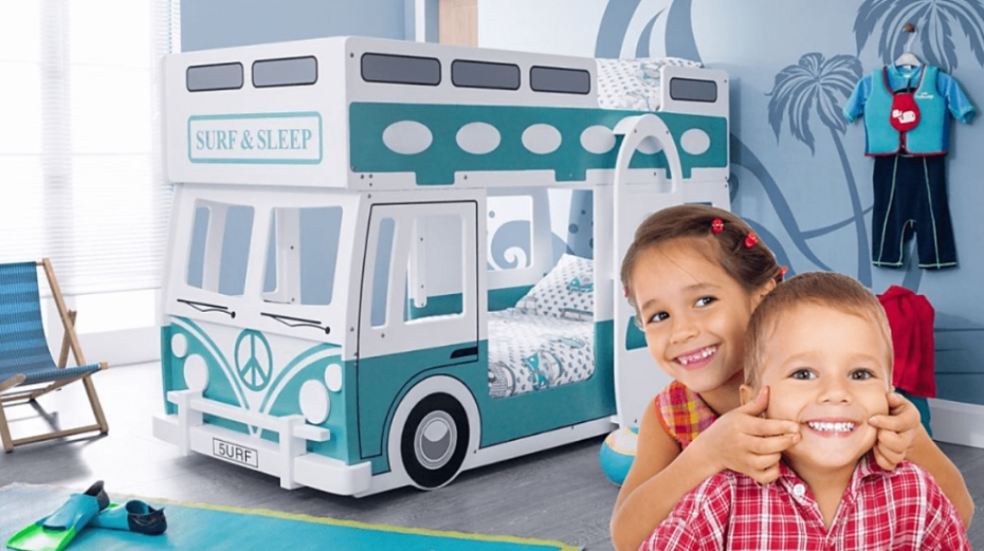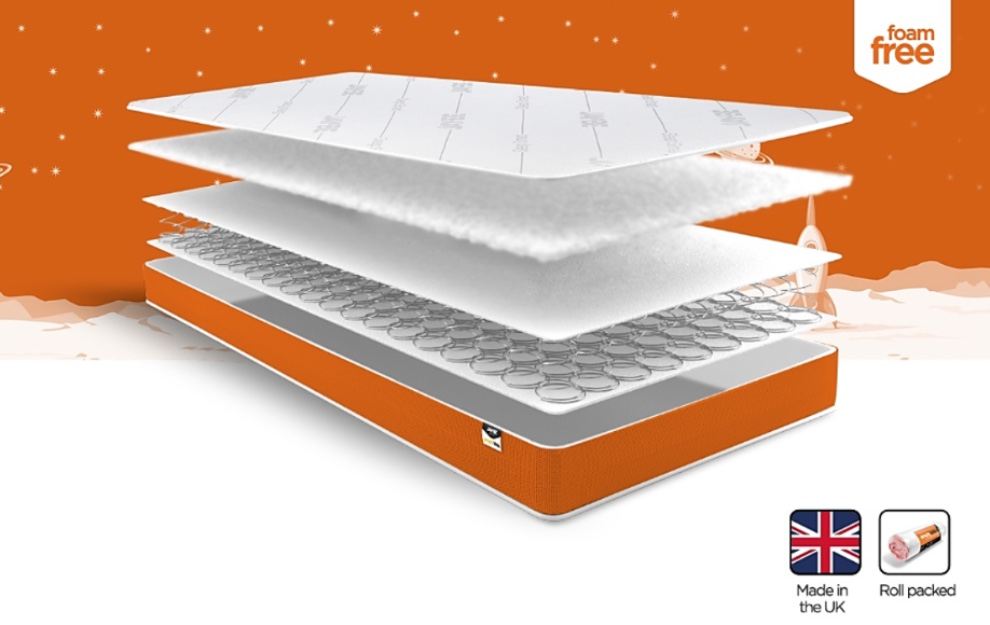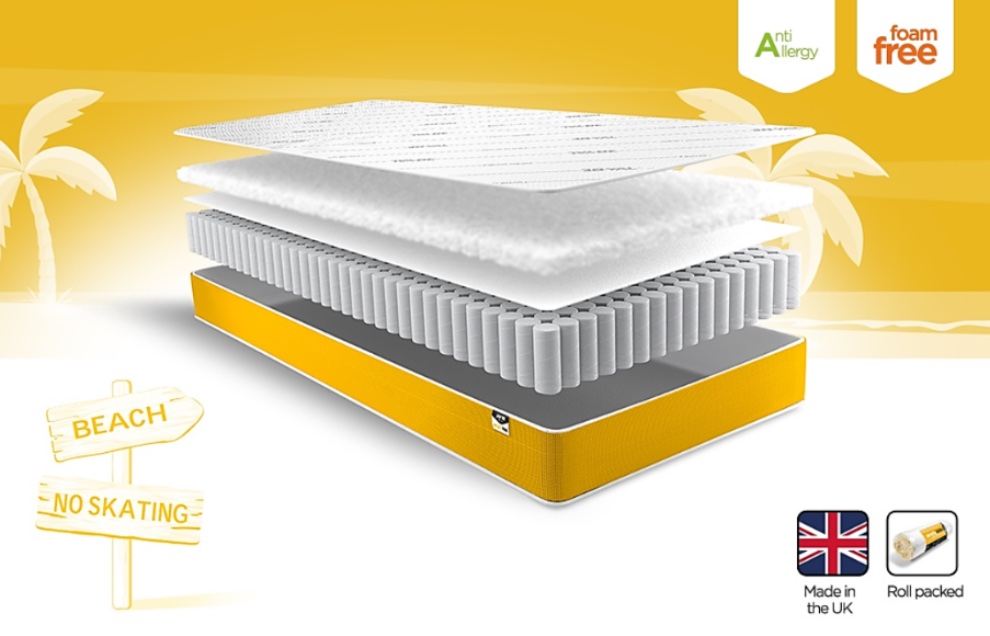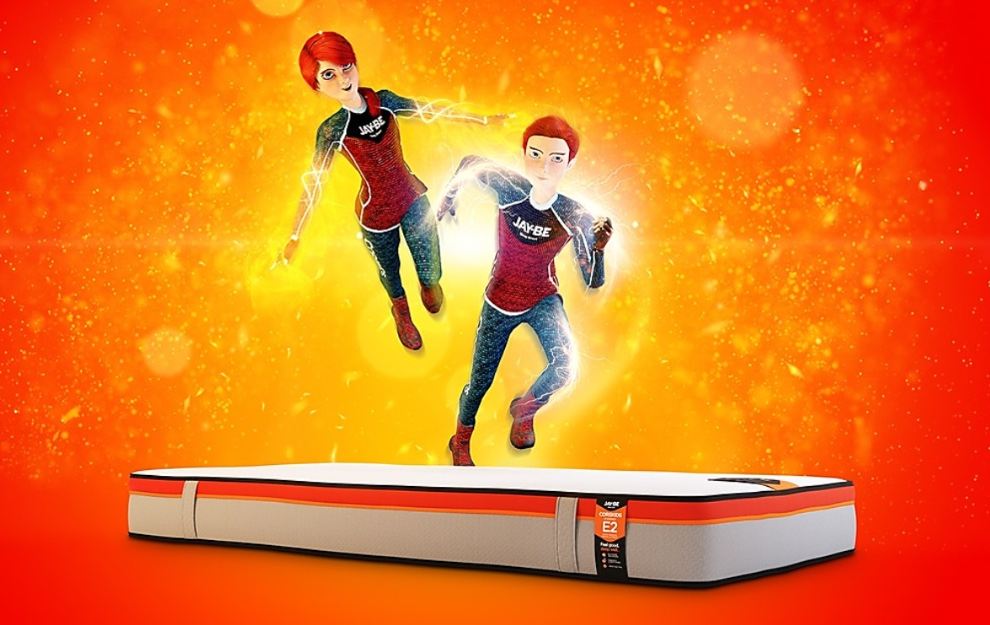
Kids' mattress buying guide from Bedstar
The most important factor when buying a mattress for an adult is body weight, but with children, we also need to anticipate their growth – this makes choosing the right mattress a bit of a headache, but nothing we can't sort out.
Suppose your kid is over five years old. In that case, you can get an adult mattress with a medium-soft or medium rating, or even a medium-firm rating, providing there’s sufficient cushioning in the top layer for your child to squash into.
Equally important as the firmness rating is the mattress technology – some technologies are more durable than others (a crucial factor since children literally jump on and into their bed!). Pocket springs last longer than open coil springs, so we recommend pocket springs to ensure a longer lifespan and the false economy of buying cheap.
A quick buyer's guide to choosing a kid's mattress

Pictured: Jay-Be Foam Free Sprung Mattress. Available from Bedstar.
- Children's mattresses like the Jay-Be Foam Free Sprung and Anti-Allergy mattress are great options for bunk beds due to their 18cm thickness – remember, if your kid sleeps in a bunk bed or mid-sleeper, they need a mattress that is significantly lower than the guard rails for safety.
- Children weigh considerably less than adults but are still growing, making adult-sized mattresses perfectly suitable.
- A medium-soft or medium mattress will suit your child's body weight the most, but a medium-firm mattress will grow with them longer.
- Pure foam mattresses are the least durable mattress type, especially with children who are brutal when jumping into bed and playing. Springs are better, with pocket spring mattresses being the most durable option.
- Hybrid mattresses are another excellent choice. The difference between hybrids and pocket-sprung mattresses is hybrids have more layers of differing densities, such as soft, medium, and high-density foams.
Finding the right firmness level
There are pros and cons to softer and firmer mattresses for children. Softer mattresses provide more cushioning for smaller, lighter bodies and may be more comfortable initially.
However, children grow quickly, and a mattress that's initially very soft may not offer enough support as your child gets bigger.

Pictured: Jay-Be anti-Allergy Foam Free e-Pocket® Sprung Mattress. Available from Bedstar.
Firmer mattresses don't conform as closely to a small child's body but provide sturdy support for the spine as children grow. The ideal option is often a medium firmness that combines cushioning with support.
This allows the mattress to grow with your child over time. Overall, prioritise adequate support while also considering current comfort needs. The best approach is usually a medium firmness that adapts as your child grows.
How much should you spend on a kid's mattress?
While children's mattresses can start around £100 for a basic single, it's worth investing more for quality and durability. Mattresses with pocket springs and high-quality foams like memory foam will last longer and stay comfortable through years of use and growth.
Buying a cheap mattress can become a false economy if you must replace it after a year or two. Spending £200-300 can get you a durable mattress your child can sleep on for 5+ years. The extra investment upfront saves money over time compared to replacing cheap mattresses repeatedly.
Prioritise quality materials and construction like pocket springs and dense, supportive foams to ensure your investment pays off long-term.

Pictured: COREKIDS™ IR-Energy E2 Memory e-Pocket™ 750* spring system
Don't forget to invest in good bedding!
Invest in seasonal duvets for the right time of year – 13.5 togs for winter, 10 tog duvets for all seasons, and 4.5 for summer. Hollowfibre is our favourite duvet material because it is warm, lofty, and animal cruelty-free (unlike down).
Pillows should suit your child's sleep position and preference - look for soft, firm, or contour options to support their head.
Finally, cotton bed sheets with a 160 to 200-thread count strike the perfect balance of affordability and comfort. Cheap polyester bedding sets are scratchy and can reduce comfort levels, impacting your kid’s sleep quality.













